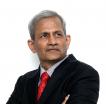Articles
| Filter by : |
-
Future of Power
 November 2005 By Sundeep Waslekar
November 2005 By Sundeep WaslekarI was recently at Waterloo, a small university town about an hour�€™s drive from Toronto, Canada where my friend John English has recently established the Center for International Governance Innovation (CIGI) with support from Jim Balsillie, founder of the Blackberry communication system. The occasion was a CIGI conference on emerging powers.
read more -
Crouching Dragon: Chinese PeasantsNovember 2005 By Rashmi Jethani
While the world is impressed by China�€™s industrial progress, it may be in for a shock in the rising Asian power�€™s countryside. China might be able to manage its much-feared banking crisis and might even tide over the disharmony between political autocracy and economic liberalism. However, despite the best intensions of the new team led by Hu and Wen, it may experience a rebellion in its farmlands in the next decade.
read more -
Clyde Prestowitz, Rogue NationNovember 2005 By Kumud Pallavi Mutalik
Rogue Nation is a thought provoking and striking analysis of America�€™s standing in the world. The author, Clyde Prestowitz, with his unique background in international relations and policy making (former official in the Reagan administration and currently a president of a think-tank) uses his personal experiences to highlight the reasons why the United States, as a country, is at odds with most countries and in opposition with a host of issues throughout the world �€“ the war on Iraq, Israel-Palestine conflict, free-trade agreements, and more.
read more -
The Future of God
 October 2005 By Sundeep Waslekar
October 2005 By Sundeep WaslekarStrategic Foresight Group uses the 4-G framework to analyse the future of countries. Three of the 4 Gs �€“ Growth, Governance and Geopolitics �€“ represent traditional drivers that determine the destiny of a nation. Increasingly we are finding that the 4th G �€“ God �€“ is assuming importance in our calculations.
read more -
Uzbekistan After KarimovOctober 2005 By Leena Pillai
The political history of Uzbekistan since its independence on August 31, 1991 is the story of the consolidation of Presidential powers by Islam Abduganievich Karimov. The state handling of the Andijon uprising in May 2005 demonstrated to what extent Karimov was willing to go, to hold on to power. His authoritarian tendencies did not even spare the US. Thus the recent volte-face in Uzbekistan�€™s foreign policy was of no surprise.
read more -
Daniel Levitas, Terrorist Next Door �€“ The Militia Movement and the Radical RightOctober 2005 By Devika Mistry
Wright�€™s premise starts at the works of Paul Gauguin. A 19th century painter, Gauguin�€™s mural asks three questions that are vital to the understanding of our own environmental dilemmas of today: �€œWhere do we come from? Where are we? Where are we going?�€ For Wright, it is the third question, which intrigues him. �€œWhere are we going?�€ Wright believes that careful reflection on the first two questions can ultimately answer where our species is headed.
read more -
Business and Periphery
 September 2005 By Sundeep Waslekar
September 2005 By Sundeep WaslekarStrategic Foresight Group is a product of twenty first century globalisation. We function because of the Internet, inexpensive conference calls across continents, and affordable airfares (though the latter might change with oil prices expected to reach $100 per barrel). We have collaborators around the world who are concerned about shifting global paradigms, and not merely their own geographies...
read more -
Turkey in Transition
 September 2005 By Ilmas Futehally
September 2005 By Ilmas FutehallySurrounded by 13 of the 18 conflict zones in the world, located at the junction of Europe and Asia, centrally placed on the energy route to Europe, the future of Turkey is bound to impact the future of the world. Strategic Foresight Group was invited to Turkey in February 2005 for consultations with the government for our Sustainable Global Security Initiative. We were fortunate to meet a wide range of leaders and scholars, including Prime Minister Recep Tayyip Erdogan, who was one of the first leaders we met.
read more
















